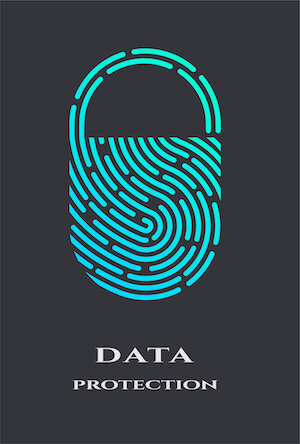Weekly IP Buzz for the Week Ending January 10, 2020
A summary of interesting developments in intellectual property, technology, social media, and Internet law for week ending January 10, 2020. Amazon’s use of biometrics. Website privacy.
In this week's post, we see as technology giants such as Facebook and Amazon continue to launch and test new biometric scanners, privacy experts warn against the blind adoption of such measures. The intersection of employment law and the right to privacy for employees’ biometric data should also be examined.
Also, an overview of website privacy policies, and addressing Fair Information Principles.
Amazon’s Use of Biometrics Come Under Scrutiny
Both Amazon and Facebook have made headlines in recent months after it was discovered that they were using employees to test new biometric data use measures. Specifically, Amazon has been under increased scrutiny after information was leaked that Amazon not only had facial recognition programs in the works but a new payment system that uses hands as identification as well.
No, it is not the words for a great house in Game of Thrones – flesh and blood is the new way that Amazon intends to ring up store purchases in Whole Foods. Currently, Amazon is already testing scanners that are capable of identifying human hands as a method of payment.
While both Amazon and Facebook have faced criticism for using their employees as test subjects, raising questions about biometric privacy and its intersection with employee rights under law, the technology giants have continued to plow forward with their plans to integrate the use of biometric data into new methods of identification.
Read more here.
Website Privacy Policy
Privacy concerns arise in any situation where personal information is collected and stored. In fact, any website that collects personally identifying information is required to post a Privacy Policy disclosing the ways that the party gathers, uses, discloses, and manages personally identifying information. While there is no single definition for what constitutes personally identifying information, with respect to Privacy Policies it is prudent for companies to assume a definition that covers any information that could possibly identify a person or information about them.
Read more here.
Click to read the previous Weekly IP Buzz on Thriving Attorney.
For more posts, see our Intellectual Property Law Blog.
--------
Darin M. Klemchuk is founder of Klemchuk LLP, a litigation, intellectual property, and transactional law firm located in Dallas, Texas. He also co-founded Project K, a charitable movement devoted to changing the world one random act of kindness at a time, and publishes Thriving Attorney, a blog dedicated to exploring the business of the practice of law, productivity and performance for attorneys, and other topics such as law firm leadership and management, law firm culture, and business development for attorneys.
Click to learn more about Darin M. Klemchuk's law practice as an intellectual property lawyer.
Weekly IP Buzz for the Week Ending December 20, 2019
A summary of interesting developments in intellectual property, technology, social media, and Internet law for week ending December 20, 2019. Are smart toys too smart?
In this week's post, we see how the Internet of Things has spread to children’s toys, which now poses new privacy questions for children and parents alike. These “smart” toys have fun new capabilities, but CARU warns they also invite new privacy threats and challenges.
Also, for software owners, some alternative software intellectual property protection strategies and tools.
Smart Toys for Kids May Be Too Smart
With the advent of the Internet of Things, toys for kids and toddlers are increasingly becoming “smart” in that they can now upload and download information or data wirelessly from the Internet.
According to the Children’s Advertising Reviewing Unit (“CARU”), more and more toys are now able to wirelessly connect to the Internet, and as such, may be collecting the personal information of children. The information collected by these toys may include, but are not limited to, names, addresses, email addresses, gender, and age.
While many manufacturers have taken the steps to try to require parental permission before uploading or sharing such data, CARU notes that there is a worrying amount of toys that do not have proper safeguards in place to prevent children from faking parental acceptance, or the toys simply do not request permission at all.
Read more here.
Software Protection Strategies: Alternatives to Patents
Over the past few decades, intellectual property (IP) has become an increasingly larger portion of the capital investment and assets of U.S. companies. For software companies, in particular, IP legal protection is crucial to secure their assets from theft or copycats.
For many software companies, patents serve as a key tool in protecting their rights in and to their software products. U.S. patent owners can potentially prevent others from making, using, or selling any products or services that incorporate their patented inventions or methods throughout the U.S. As such, patents can be powerful deterrents to copycats, and can provide patent owners with significant market advantages.
However, software patents are expensive and difficult to maintain, and can be even more expensive and difficult to enforce. The lifetime cost of obtaining and maintaining a patent in the U.S. can easily top $30,000. Of course, patents expire after a maximum of 20 years, so at some point the patented inventions become open to the public.
Also, U.S. patent protection does not protect the invention from users in other countries. Of course, since the U.S. patent process involves a publication of the claims that, thanks to the Internet, are globally available, failure to secure international patents leaves a U.S. patent owner unable to prevent use of their technology by foreigners. As such, U.S. patent owners often seek patent protection in foreign countries, as well, at costs of $30,000 or more for each additional country where patent protection is desired.
In addition, once a patent is obtained, the burden of enforcing patent rights falls upon the patent owners, themselves. Thus, patent owners must bear the cost of investigating potential infringement and, if necessary, filing infringement lawsuits.
In light of the costs and limitations of software patents, some of which are outlined above, software owners often employ alternative legal tools to protect their IP rights.
Read more here.
Click to read the previous Weekly IP Buzz on Thriving Attorney.
For more posts, see our Intellectual Property Law Blog.
--------
Darin M. Klemchuk is founder of Klemchuk LLP, a litigation, intellectual property, and transactional law firm located in Dallas, Texas. He also co-founded Project K, a charitable movement devoted to changing the world one random act of kindness at a time, and publishes Thriving Attorney, a blog dedicated to exploring the business of the practice of law, productivity and performance for attorneys, and other topics such as law firm leadership and management, law firm culture, and business development for attorneys.
Click to learn more about Darin M. Klemchuk's law practice as an intellectual property lawyer.
Weekly IP Buzz for the Week Ending December 6, 2019
A summary of interesting developments in intellectual property, technology, social media, and Internet law for week ending December 6, 2019. Shelby’s Cobra IP.
In this week's post, as Hollywood releases a mega-blockbuster featuring big Hollywood names and even bigger automobile names, we look back at the history of Shelby’s Cobra name and associated IP holdings, because it holds many valuable intellectual property law lessons.
The Winding Roads of Shelby’s Cobra
Shelby’s Cobra IP History Teaches Lessons in Trademark Protection
With the recent release of the Ford v. Ferrari movie, it brings Carroll Shelby’s Cobra back into the limelight and highlights the winding path Carroll had to navigate in securing and protecting the intellectual property rights associated with the iconic car.
As we look back at Shelby’s journey to protect the Cobra brand, many car enthusiasts would first bring up an old myth about whether or not Shelby bought the rights to the Cobra name for just a dollar.
Carroll Shelby began his racing career in 1952, near the time that the Crosley Corporation, later known as Crosley Cars, was entering the sunset period of its reign. Active from 1939 to 1952, Crosley was a small, independent American manufacturer of compact cars, some cars being so light and smart that they were considered microcars.
Even today, long after Crosley has faded into the past, car enthusiasts still revere the name Crosley, sponsoring a number of car clubs across the world. Crosley fans enthusiastically note that Crosley was first to introduce many important features to American automobiles. For example, Crosley has been credited with coining the term “Sports-Utility” back in 1947 as well as for being the first to introduce to the masses: overhead camshaft engines; disc brakes; and the first post-war sports car. Notably, Crosley was also well known for its CoBra engine, which was originally developed for military use aboard PT boats and B-17 Flying Fortress bombers, and then later transformed for automobile use in 1946.
As Crosley’s use of CoBra predated Shelby’s use by almost two decades, many assume that Crosley’s use influenced Shelby’s decision to name his iconic car the Cobra. And as Shelby’s ascension into fame coincided with Crosley exit of the car scene, the timing further fueled rumors that Shelby was able to purchase the rights to the CoBra name for a mere dollar.
While Shelby himself has denied that Crosley’s use ever influenced him, stating that he found inspiration for the name from a dream instead, Crosley enthusiasts have decried this story as Shelby salesmanship. Although both camps are unlikely to ever agree on where the inspiration ultimately came from, Shelby did admit that he did run into significant difficulty when he eventually tried to secure rights to the Cobra name.
In his journey to secure the name, Shelby had to trace the Cobra name through 9 different companies that held some IP claim or other to the Cobra engine or name after Crosley disbanded.
Read the full article here.
Click to read the previous Weekly IP Buzz on Thriving Attorney.
For more posts, see our Intellectual Property Law Blog.
--------
Darin M. Klemchuk is founder of Klemchuk LLP, a litigation, intellectual property, and transactional law firm located in Dallas, Texas. He also co-founded Project K, a charitable movement devoted to changing the world one random act of kindness at a time, and publishes Thriving Attorney, a blog dedicated to exploring the business of the practice of law, productivity and performance for attorneys, and other topics such as law firm leadership and management, law firm culture, and business development for attorneys.
Click to learn more about Darin M. Klemchuk's law practice as an intellectual property lawyer.
Weekly IP Buzz for the Week Ending November 29, 2019
A summary of interesting developments in intellectual property, technology, social media, and Internet law for week ending November 29, 2019. Nirvana Happy Face.
In this week's post, we see as entertainment and fashion continue to look to the past for inspiration while simultaneously hoping to profit off of public nostalgia, Nirvana has scored a legal win as its lawsuit against Marc Jacobs will continue on despite Marc Jacobs’s motion to dismiss. Brands should be aware that courts will consider all factors in infringement cases, refusing to limit their analysis to official registrations alone.
Nirvana Beats Marc Jacobs’s Motion to Dismiss
Fashion giant Marc Jacobs and grunge music icon Nirvana have been squaring off in court over claims of copyright and trademark infringement. In the latest chapter, the court dismissed a motion by Marc Jacobs to dismiss Nirvana’s lawsuit, holding that Nirvana has demonstrated enough substantial similarity to support its claims of infringement.
At the heart of the case is a smiley face (“Happy Face”) that Nirvana has copyrighted. Nirvana has used a yellow smiley face with ‘X’s’ as the eyes and a wavy line as the mouth with a tongue sticking out as part of its brand for the past twenty-five years. With the smiley face at the foundation, Nirvana has launched t-shirts and merchandise that play off the artwork, often using yellow lines on black background and other distinctive elements that Nirvana claims Marc Jacobs has now infringed upon.
Nirvana further argues that because Happy Face has come to symbolize the goodwill that Nirvana has built as an entertainment act, Marc Jacobs’s actions not only qualify as copyright infringement of Happy Face, but as trademark infringement as well. As such, Nirvana also alleges trademark infringement and false designation of origin over Happy Face.
Read the full article here.
Click to read the previous Weekly IP Buzz on Thriving Attorney.
For more posts, see our Intellectual Property Law Blog.
--------
Darin M. Klemchuk is founder of Klemchuk LLP, a litigation, intellectual property, and transactional law firm located in Dallas, Texas. He also co-founded Project K, a charitable movement devoted to changing the world one random act of kindness at a time, and publishes Thriving Attorney, a blog dedicated to exploring the business of the practice of law, productivity and performance for attorneys, and other topics such as law firm leadership and management, law firm culture, and business development for attorneys.
Click to learn more about Darin M. Klemchuk's law practice as an intellectual property lawyer.
Weekly IP Buzz for the Week Ending November 22, 2019
A summary of interesting developments in intellectual property, technology, social media, and Internet law for week ending November 22, 2019. Law enforcement follows the bitcoin trail. Local patent rules and WDTX.
In this week's post, we see as cryptocurrency becomes increasingly common and accepted by Internet users, law enforcement has become better equipped to follow the digital trail left by some criminals. Law enforcement seems to be changing its tune regarding cryptocurrency, no longer shunning it, as bitcoin evidence has now been used to crack one of the biggest child pornography rings on the dark web.
Also, will the U.S. District Court for the Western District of Texas (WDTX) issue formal local patent rules? The Court currently has entered a Standing Order Regarding Notice of Readiness in Patent Cases and Order Governing Proceedings — Patent Cases signed by Judge Alan Albright.
Large Online Child Porn Ring Busted Through Bitcoin Trail
A joint effort by the U.S. IRS Criminal Investigations, Homeland Security, and the Department of Justice (“DOJ”) brought down one of the largest child pornography rings operating on the Internet by following the bitcoin addresses and blockchains held by the users.
Authorities have long warned that cryptocurrency would be appealing to criminals to use due to its anonymous nature and unregulated trade nature. It appears that the tables have turned, however, as the U.S. government announced the takedown of one of the largest child pornography rings thanks to the tracking of bitcoin addresses and blockchains.
Read the full article here.
Local Patent Rules for the Western District of Texas?
Will the U.S. District Court for the Western District of Texas (WDTX) issue formal local patent rules? The Court currently has entered a Standing Order Regarding Notice of Readiness in Patent Cases and Order Governing Proceedings — Patent Cases signed by Judge Alan Albright.
If the court enters official local patent rules, we will update our Western District of Texas Local Patent Rules page.
Local Patent Rules Summary
We collected all the local rules and in particular local patent rules in the most active patent litigation jurisdiction across the country. See our post Local Patent Rules -- Collection of Rules for the Busiest Patent Litigation Dockets for access to this information.
More details here.
Click to read the previous Weekly IP Buzz on Thriving Attorney.
For more posts, see our Intellectual Property Law Blog.
--------
Darin M. Klemchuk is founder of Klemchuk LLP, a litigation, intellectual property, and transactional law firm located in Dallas, Texas. He also co-founded Project K, a charitable movement devoted to changing the world one random act of kindness at a time, and publishes Thriving Attorney, a blog dedicated to exploring the business of the practice of law, productivity and performance for attorneys, and other topics such as law firm leadership and management, law firm culture, and business development for attorneys.
Click to learn more about Darin M. Klemchuk's law practice as an intellectual property lawyer.
Weekly IP Buzz for the Week Ending November 15, 2019
A summary of interesting developments in intellectual property, technology, social media, and Internet law for week ending November 15, 2019. Cease and desist letters may turn a case. KBEs and purchase agreements.
In this week's post, we look at how recent holdings by courts in trademark cases have gone the opposite way of precedent previously set by other courts. The language in a cease and desist letter may now be analyzed by courts to determine whether or not they create a justiciable controversy and subsequently allow for declaratory judgments.
Also, an overview of the Purchase Agreement, a definitive agreement governing all aspects of the transaction, once a Knowledge-Based Enterprise (“KBE”) seller and a prospective buyer have agreed on the key elements of a transaction. Part of a series covering the key elements involved in the sale of IP-based and professional services businesses.
Is Your Cease and Desist Merely a Bluff?
The use of cease and desist letters are common tools for intellectual property counsel to use to ward off potential infringers as well as to assert rights in particular trademarks. Some court holdings, however, have put cease and desist letters and their authors on notice by analyzing whether the language in the letters create a true justiciable controversy that allows for declaratory judgments in trademark cases.
Declaratory judgments are often requested by parties that receive the cease and desist letters so that they may continue to use their mark without fear of infringement and not have to worry about rebranding or registering and protecting an entirely new mark.
Recent decisions in trademark cases have raised issues about declaratory judgments as the latest holdings contrast with previous precedent set by other courts and also bring new focus to the specific wording of cease and desist letters. This is important, because companies and legal counsel must now be more careful about the exact content of the cease and desist letters in anticipation of the potential for declaratory judgement.
Read more here.
Transferring Intangible Assets: Playbook for Selling the Knowledge-Based Enterprise - Purchase Agreement
Once a Knowledge-Based Enterprise (“KBE”) seller and a prospective buyer have agreed on the key elements of a transaction, and after (or more often, during) the due diligence process, legal counsel for the buyer and seller will begin drafting the Purchase Agreement, a definitive agreement governing all aspects of the transaction.
The main focus of drafting definitive deal agreements for the transaction will be on the Purchase Agreement, but it could also include a number of additional documents related to the transaction. However, the type of ancillary agreements needed vary greatly from deal to deal, so this article concentrates on the primary focus agreement, except for a couple of the most common additional agreements involved in a KBE transaction.
Read the full article here, which is the 7th article in an 8-part series on transferring intangible assets. Authored by Jim Chester, Partner at Klemchuk LLP.
Click to read the previous Weekly IP Buzz on Thriving Attorney.
For more posts, see our Intellectual Property Law Blog.
--------
Darin M. Klemchuk is founder of Klemchuk LLP, a litigation, intellectual property, and transactional law firm located in Dallas, Texas. He also co-founded Project K, a charitable movement devoted to changing the world one random act of kindness at a time, and publishes Thriving Attorney, a blog dedicated to exploring the business of the practice of law, productivity and performance for attorneys, and other topics such as law firm leadership and management, law firm culture, and business development for attorneys.
Click to learn more about Darin M. Klemchuk's law practice as an intellectual property lawyer.
Weekly IP Buzz for the Week Ending November 8, 2019
A summary of interesting developments in intellectual property, technology, social media, and Internet law for week ending November 8, 2019. GNOME finds allies against patent troll. Transferring intangible assets.
In this week's post, we look at patent trolls as they continue to file lawsuits against a variety of defendants. Choosing to sue a popular non-profit open-source group could be a disastrous move for RPI because the case has drawn widespread media attention in the field as well as the defensive support of powerful allies. While patent trolls are unlikely to stop their practice of filing such patent infringement lawsuits, the current fight between GNOME and RPI may cause trolls to think twice before suing open-source non-profits.
Also, a look at the challenges presented with buying and selling a business. Knowledge-based businesses have additional nuances that must be addressed when transferring intangible assets.
GNOME Fights Back Against Patent Troll and Finds Allies
The GNOME Foundation (“GNOME”), a leading open-source and Linux non-profit group, has been sued by Rothschild Patent Imaging (“RPI”) for allegedly violating an RPI patent for “wireless image distribution system and method patent.” RPI claims that GNOME violated U.S. Patent No. 9,936,086 and is asking for the removal of the functionality from GNOME’s “Shotwell” application, or for a running royalty from the time of judgment going forward instead.
Critics of the lawsuit have called RPI a patent troll, noting that RPI is a non-practicing entity that has filed 714 patent-related lawsuits in the last six years, and that the patent creator, Leigh Rothchild, has filed the single largest number of lawsuits at 141. While, at first blush, many may dismiss the idea that the lawsuit could be successful due to the sheer number of photo applications that currently boast this functionality, experts in the field note that RPI’s patent claims in the patent have been so broadly written that courts could be swayed by RPI’s argument.
Though many experts have said that it is difficult to determine which way a court or jury would rule, the general consensus in the field has been to question whether RPI has simply made a colossal blunder by filing suit against a popular non-profit, which likely has little assets and potentially no insurance to cover any court judgment found against them. As such, many speculate that RPI could simply have been assuming that with little assets, GNOME would quickly settle and agree to pay money for a license, which RPI could later use as future leverage against other companies.
Instead, now that GNOME has decided to fight back, the suit could quickly become a public relations nightmare for RPI, especially as GNOME has found some powerful allies in its fight against RPI. Currently, GNOME has filed three legal defenses in answer to RPI's claims: 1) a motion to dismiss; 2) an answer to the claim; and 3) a counterclaim.
Announced at the Open Source Summit Europe, the Open Invention Network (“OIN”), a pro-Linux consortium that preaches patent non-aggression, announced that it would use its own legal resources to not only help GNOME in its legal dispute with RPI, but to also search for prior art that could be used to invalidate RPI’s patent altogether. OIN’s chief executive officer, Keith Bergelt, even used his keynote speech at the Open Source Summit Europe in France to call RPI a “bad company,” whose actions slowed innovation and used settlements to intimidate others into settling.
GNOME believes that OIN’s help of providing prior art evidence will help GNOME not only defend against the lawsuit but send a message to RPI that it cannot be bullied into settlements.
Read more here.
Transferring Intangible Assets: Knowledge-Based Enterprise
A knowledge-based enterprise (“KBE”) refers to a business that heavily leverages its creative, non-tangible assets, such as: information, data, goodwill, and know-how. Legally, these types of assets are called intellectual property and are characterized as either: trade secrets, trademarks, copyrights, or patents (collectively, “IP Assets”).
Despite the intangible nature of these IP Assets, the value to the companies that create, own and use them is very real. In fact, for KBEs, IP Assets comprise a significant portion of their overall enterprise value. Therefore, knowing the proper way of transferring intangible assets is key to successful business transactions.
Here's the latest article in an 8-part series on transferring intangible assets. Authored by Jim Chester.
Click to read the previous Weekly IP Buzz on Thriving Attorney.
For more posts, see our Intellectual Property Law Blog.
--------
Darin M. Klemchuk is founder of Klemchuk LLP, a litigation, intellectual property, and transactional law firm located in Dallas, Texas. He also co-founded Project K, a charitable movement devoted to changing the world one random act of kindness at a time, and publishes Thriving Attorney, a blog dedicated to exploring the business of the practice of law, productivity and performance for attorneys, and other topics such as law firm leadership and management, law firm culture, and business development for attorneys.
Click to learn more about Darin M. Klemchuk's law practice as an intellectual property lawyer.
Weekly IP Buzz for the Week Ending November 1, 2019
A summary of interesting developments in intellectual property, technology, social media, and Internet law for week ending November 1, 2019. Beer companies and theft of trade secrets. Local patent rules.
In this week's post, we look at how trade secret protection and non-competes are a must-have in especially competitive markets. Getting proper safeguards in place and following protocols for protection of trade secrets is important particularly when the potential for lawsuits arising between competitors is heightened. Example: the beer battle over trade secret theft with Anheuser-Busch suing Coors. As in any trade secret suit, Anheuser-Busch had to lay out for the court how its beer recipe qualifies as a trade secret.
Also, we have collected all the local patent rules for the most active patent litigation jurisdictions in the U.S. There's a link to each court's local rules and local patent rules, by state.
Theft of Trade Secrets: The Newest Chapter in the War of the Beer Companies
A war between beer companies continues to brew. Recently it was a deceptive advertising lawsuit between Anheuser-Busch (“AB”) and Molson Coors Brewing Company (“Coors”) regarding use of corn syrup in beer. Now, it’s a beer battle over trade secret theft with AB suing Coors.
AB and Coors have been battling each other in court since AB aired a Super Bowl advertisement that took aim at Coors by singling out Coors’s use of corn syrup in connection with its beer. Coors sued AB over the advertising campaign, claiming AB was guilty of illegal use of their trademarks as well as deceptive advertising, eventually winning a court ruling that AB's advertising campaign was misleading. The court also went on to issue a preliminary injunction that prohibited AB from using such language in the future and held that AB may only sell off the rest of its products that have been labeled with its “no corn syrup” packaging that it has manufactured as of June 6, 2019, or until March 2, 2020, whichever comes first.
Coming off the heels of Coors’s most recent legal victory, AB has now filed a counterclaim against Coors with allegations that Coors has gained illegal possession of photographs of AB recipes that specifically detail how AB batches are brewed, including but not limited to, information about the specific blend, volume, and weight of its ingredients. Specifically, AB alleges that Coors illegally obtained the recipes for its Michelob Ultra and Bud Light beers from an ex-AB employee that now works for Coors. This new beer giant battle over trade secret theft opens a new chapter between the beer rivals.
Read more here.
Local Patent Rules -- Collection of Rules for the Busiest Patent Litigation Dockets
Local Patent Rules by Jurisdiction
We have collected all the local patent rules for the most active patent litigation jurisdictions in the U.S.
Click here for each court’s local rules and local patent rules, by state. Two examples from the list, California and Texas, are provided below.
California
CACD Local Rules CACD Local Patent Rules
CAND Local Rules CAND Local Patent Rules
CASD Local Rules Note - Local Rules Contain Local Patent Rules
Texas
TXED Local Rules TXED Local Patent Rules
TXND Local Rules TXND Local Patent Rules Note - TXND adopted amended Local Patent Rules effective 10/1/19
TXSD Local Rules TXSD Local Patent Rules
TXWD Local Rules TXWD Local Patent Rules Note - TXWD has not yet adopted formal patent rules
Texas Local Patent Rules Resources
For counsel litigating patent cases in Texas, see our white papers Eastern District Texas Patent Rules: Diagram & Checklist, Southern District of Texas Patent Rules: Checklist, and Texas Patent Rules Northern District: Diagram & Checklist for more detail on Texas Local Patent Rules as well as a diagram of each set of rules and a downloadable checklist.
For a discussion of the recently amended local patent rules for the Northern District of Texas (NDTX Second Amended Miscellaneous Order No. 62, effective October 1, 2019) see our posts 7 Changes to the Northern District of Texas (TXND) Local Patent Rules and Northern District of Texas Adopts Amended Local Patent Rules Effective October 1, 2019.
Read more here.
Click to read the previous Weekly IP Buzz on Thriving Attorney.
For more posts, see our Intellectual Property Law Blog.
--------
Darin M. Klemchuk is founder of Klemchuk LLP, a litigation, intellectual property, and transactional law firm located in Dallas, Texas. He also co-founded Project K, a charitable movement devoted to changing the world one random act of kindness at a time, and publishes Thriving Attorney, a blog dedicated to exploring the business of the practice of law, productivity and performance for attorneys, and other topics such as law firm leadership and management, law firm culture, and business development for attorneys.
Click to learn more about Darin M. Klemchuk's law practice as an intellectual property lawyer.
Weekly IP Buzz for the Week Ending October 25, 2019
A summary of interesting developments in intellectual property, technology, social media, and Internet law for week ending October 25, 2019. IoT and Distribution. Plus, 11 different forms of Intellectual Property (IP).
In this week's post, we look at the Internet of Things (IoT) in the business realm. As IoT is increasingly used in business settings, such as for improvements and cost benefits in warehouse distribution, companies should be mindful of the impact such implementation can have on data privacy. Companies should be aware of data regulations and work to ensure privacy protections are in place before IoT systems are utilized that may affect how private data is handled.
Also, a discussion of the 11 different types of intellectual property that are recognized under U.S. law. An awareness of the broad scope of valuable but intangible property is particularly valuable when purchasing or selling a business.
Internet of Things Evolves Into Business Use: IoT Transforms Distribution
As the Internet of Things (“IoT”) expands and continues to impact more fields of work and sectors beyond technology, it becomes clear that IoT can transform business for a variety of companies. The use of IoT for warehousing distribution is one good example of how IoT can create efficiency in business.
Most commonly, IoT is known for allowing for normal household gadgets to be connected to each other via hubs such as Amazon’s Echo devices or Samsung’s Hue system. However, experts in the manufacturing field have noted the ability for IoT to transform warehousing, and as a result, increase the efficiency of warehouse distribution.
As IoT becomes implemented and more integral to distribution channels, it is important that companies look to ensure proper technology and data privacy protections are in place.
Read more here.
11 Different Forms of Intellectual Property
Did you know there are at least 11 different forms of intellectual property (IP) that are recognized in the U.S.? If you search the web for “types of intellectual property,” most of the results will point to articles discussing four or five, but those discussions omit or join several unique forms of legal protection for intellectual property. An awareness of the broad scope of valuable but intangible property is particularly valuable when purchasing or selling a business.
Most people are familiar with the three cornerstones of intellectual property—copyrights, patents, and trademarks—but there are several other less know forms as well. Trade secrets, trade dress, and the “right of publicity” are also legally recognized forms of intellectual property. But there are several types of intellectual property within those categories and a few extras that most people don’t usually consider that can be among to most valuable of all.
Read the full article here.
Click to read the previous Weekly IP Buzz on Thriving Attorney.
For more posts, see our Intellectual Property Law Blog.
--------
Darin M. Klemchuk is founder of Klemchuk LLP, a litigation, intellectual property, and transactional law firm located in Dallas, Texas. He also co-founded Project K, a charitable movement devoted to changing the world one random act of kindness at a time, and publishes Thriving Attorney, a blog dedicated to exploring the business of the practice of law, productivity and performance for attorneys, and other topics such as law firm leadership and management, law firm culture, and business development for attorneys.
Click to learn more about Darin M. Klemchuk's law practice as an intellectual property lawyer.
Weekly IP Buzz for the Week Ending October 18, 2019
A summary of interesting developments in intellectual property, technology, social media, and Internet law for week ending October 18, 2019. New levels in product placement. To-do’s for data protection regulations.
In this week's post, we look at viewers becoming savvier about skipping commercials and other advertisements, and companies seeking brand recognition through television shows and video games. This trend is taking “product placement” to a new level and also raising interesting legal issues.
Also, with new data protection regulations rolling out, the need for preemptive action for compliance is important. Companies should audit internal procedures and make new ones while consulting counsel regarding the effect of new regulations.
Companies Seek Brand Recognition Through Commercials Within TV Shows, Video Games
As public households begin to increasingly rely on DVR to skip commercials and ad-blocking software to block ads from appearing on their browsers, brand owners have had to adjust and come up with new ways to grow their brand recognition among consumers. In order to do this, marketing campaigns have begun to include their products into the content of the television series or video games themselves.
For instance, Coca-Cola was able to sign an incredibly lucrative advertising campaign with Netflix’s popular original series, “Stranger Things” to have the Stranger Things characters not only drink the soda in the series, but actually praise and debate the taste of “Classic” Coke versus “New” Coke, which was a historically accurate product offering that would have debuted during the time that Stranger Things is set during.
Read more here.
To-Do List for Companies Seeking Compliance with New Data Protection Regulations
As more and more states pass data privacy and protection legislation in an effort to protect consumer data, companies should look inward to determine whether they can meet new state regulations and guidelines, as well as the European Union’s General Data Protection Regulation (GDPR). This to-do list can help companies quickly get up to speed to work toward the requirements and compliance with new data protection regulations.
Items on the list include conducting an audit of current data protection policies and protocols, creating new processes and procedures to ensure compliance to the new data protection regulations, and more.
Read the full article here.
Click to read the previous Weekly IP Buzz on Thriving Attorney.
For more posts, see our Intellectual Property Law Blog.
--------
Darin M. Klemchuk is founder of Klemchuk LLP, a litigation, intellectual property, and transactional law firm located in Dallas, Texas. He also co-founded Project K, a charitable movement devoted to changing the world one random act of kindness at a time, and publishes Thriving Attorney, a blog dedicated to exploring the business of the practice of law, productivity and performance for attorneys, and other topics such as law firm leadership and management, law firm culture, and business development for attorneys.
Click to learn more about Darin M. Klemchuk's law practice as an intellectual property lawyer.
Weekly IP Buzz for the Week Ending October 11, 2019
A summary of interesting developments in intellectual property, technology, social media, and Internet law for week ending October 11, 2019. State of Texas drone laws. Plus, new NDTX local patent rules.
In this week's post, we look at drones and Texas. Passed in 2013, the Texas state law specifically states that drones are prohibited from being used as “surveillance” devices, which means drones that are deemed to being used to photograph or record individuals, private property, or other “critical infrastructure facilities” are banned by law. The National Press Photographers Association and the Texas Press Association have teamed up to sue Texas over what they perceive to be unfair treatment. How will courts decide the scope of Texas drone law?
Also, an outline of seven changes to the NDTX Local Patent Rules that went into effect October 1, 2019, with Second Amended Miscellaneous Order No. 62.
Photographer and Journalist Associations Sue Texas Over State Drone Laws
The debate over Texas state drone laws and privacy has increasingly raged on since Amazon first made headlines when they launched multimedia campaigns that touted the introduction of unmanned drones into their delivery fleet. With federal guidance lacking, state laws have filled the void leaving photojournalists at odds with Texas’ drone laws.
While the jurisdiction of drones would typically fall under federal aviation law, the federal government has provided little guidance and practically no response to the many questions posed by consumers and attorneys alike. As such, state law has often had to step in due to lack of federal response to many of today’s legal questions regarding drones and privacy. Unfortunately, one of the major wrinkles from having no uniform federal guidance is that states vary widely in how they regulate drone usage.
In Texas, for example, legislators have chosen to treat the use of drones differently. Specifically, Texas strictly limits the use of drones in some fields but not in others. Thus, for big companies like Bell, Amazon, and Uber, their use of drones has not been restricted because their use often falls under exemptions made for commercial use. For individuals or journalists, on the other hand, more personal use tends to be limited or straight out prohibited.
In response to the drastic difference in treatment by the law, the National Press Photographers Association and the Texas Press Association have teamed up to sue Texas over what they perceive to be unfair treatment. Specifically, their lawsuit alleges that Texas law’s preferential treatment to some companies’ use of drones over others’ violates the First and Fourteenth Amendment rights of journalists in the state because it bans journalists from using the exact same type of drone technology that companies like the aforementioned technology giants are allowed to use. Under current Texas state law, photographers and journalists are forbidden from using drones to capture certain types of footage over a variety of different sites.
Read more here.
7 Changes to the Northern District of Texas (TXND) Local Patent Rules
This post provides a discussion of the major changes practitioners should consider in handling cases under the modified rules. According to the Second Amended Miscellaneous Order No. 62, the Amended Rules “will take effect on October 1, 2019, and will apply to any Dallas division patent case filed on or after that date. It will also apply to any pending Dallas division patent case in which, on the date this Order takes effect, more than 9 days remain before the initial disclosures of asserted claims and preliminary infringement contentions required by paragraph 3-1 is due.”
Click here for more details on each of the seven items listed below.
1. Modification to the Case Management Conference — Local Patent Rule 2-1(a)
2. Changes to Initial Case Management Conference — Local Patent Rules 2-1(b) through 2-1(d)
3. Adoption of Model Protective Order and Related Orders — Local Patent Rule 2-1(e)
4. New Patent Discovery Dispute Procedure — Local Patent Rule 2-6
5. Revised Timing for Disclosure of Asserted Claims and Preliminary Infringement Contentions — Local Patent Rule 3-1
6. New Procedure to Address Amendment to Contentions After Production of Source Code — Local Patent Rule 3-7(a)
7. Revised Timing for Join Claim Construction and Prehearing Statement — Local Patent Rule 4-3
For a redline comparison of the new NDTX local patent rules to the previous rules as well as more information, read our blog post, Northern District of Texas Adopts Amended Local Patent Rules Effective October 1, 2019.
Click to read the previous Weekly IP Buzz on Thriving Attorney.
For more posts, see our Intellectual Property Law Blog.
--------
Darin M. Klemchuk is founder of Klemchuk LLP, a litigation, intellectual property, and transactional law firm located in Dallas, Texas. He also co-founded Project K, a charitable movement devoted to changing the world one random act of kindness at a time, and publishes Thriving Attorney, a blog dedicated to exploring the business of the practice of law, productivity and performance for attorneys, and other topics such as law firm leadership and management, law firm culture, and business development for attorneys.
Click to learn more about Darin M. Klemchuk's law practice as an intellectual property lawyer.
Weekly IP Buzz for the week ending October 4, 2019
A summary of interesting developments in intellectual property, technology, social media, and Internet law for week ending October 4, 2019. Adtech & CCPA. Plus, new NDTX local patent rules.
In this week's post, we look at large online advertising companies that use advertising technology known as “adtech” to track consumer interests. Given the amount of money involved, it is likely that large technology companies will lobby aggressively for “adtech” exemptions to the California Consumer Privacy Act (“CCPA”) set to become effective January 2020.
Also, effective October 1, 2019, the Northern District of Texas Chief Judge Barbara M.G. Lynn entered Second Amended Miscellaneous Order No. 62, which amends the Court’s previous local patent rules. Our post provides a discussion of key differences in the new NDTX local patent rules.
What is Adtech? With CCPA Imminent, Technology Companies Seek Advertising Exemptions
The California Consumer Privacy Act (“CCPA”) is slated to become effective January 2020, and many technology companies are lobbying to have the legislation include new exemptions for advertising technology, or as it is often referred to in the industry, for “adtech.”
The CCPA is considered to be GDPR-lite because many experts consider it to be a less stringent version of the European Union’s General Data Protection Regulation (“GDPR”). Some of the GDPR’s most well-known provisions give consumers the right to ask companies what type of sensitive personal information has been collected about them as well as the right to ask companies to entirely delete that personal information. The GDPR also allows for consumers to ask companies to stop tracking them for behavioral/advertising targeting purposes. While the CCPA is not as stringent as the GDPR in other places, it does include the aforementioned provisions designed to protect consumers and their personal data. This will affect the use of adtech by technology companies seeking to track consumers online.
Most consumers have had some sort of interaction with “targeted” or “behavioral” tracking. While many companies do disclose that they track such information to “better tailor” one’s viewing experience, extensive studies have shown that it is nearly impossible to truly “opt out” or delete these adtech digital footprints. This all changes, however, if other states follow California’s lead and enact legislation similar to the CCPA.
Read more here.
Northern District of Texas Adopts Amended Local Patent Rules Effective October 1, 2019
The Northern District of Texas Chief Judge Barbara M.G. Lynn entered Second Amended Miscellaneous Order No. 62, which amends the Court’s previous local patent rules. According to the Order, the Amended Rules “will take effect on October 1, 2019, and will apply to any Dallas division patent case filed on or after that date. It will also apply to any pending Dallas division patent case in which, on the date this Order takes effect, more than 9 days remain before the initial disclosures of asserted claims and preliminary infringement contentions required by paragraph 3-1 is due.”
Find more details here, including links to download files for NDTX Amended Miscellaneous Order No. 62.
Click to read the previous Weekly IP Buzz on Thriving Attorney.
For more posts, see our Intellectual Property Law Blog.
--------
Darin M. Klemchuk is founder of Klemchuk LLP, a litigation, intellectual property, and transactional law firm located in Dallas, Texas. He also co-founded Project K, a charitable movement devoted to changing the world one random act of kindness at a time, and publishes Thriving Attorney, a blog dedicated to exploring the business of the practice of law, productivity and performance for attorneys, and other topics such as law firm leadership and management, law firm culture, and business development for attorneys.
Click to learn more about Darin M. Klemchuk's law practice as an intellectual property lawyer.
Weekly IP Buzz for the week ending September 27, 2019
A summary of interesting developments in intellectual property, technology, social media, and Internet law for week ending September 27, 2019. Two Beer Giants Go to War Over Corn Syrup. Plus, the $350 Billion Patent Infringement Suit.
In this week's post, we look at the suit filed by MillerCoors against Anheuser-Busch for illegal use of their trademarks and as well as deceptive advertising. The MillerCoors versus Anheuser-Busch deceptive advertising is the latest in battles between large companies over competition. This one is significant because the advertising campaign at issue played prominently in the 2019 Super Bowl.
Also, the $350 Billion patent infringement suit filed by Mers Kutt could be one of the largest in the history of the Eastern District of Texas. The lawsuit lists Apple, IBM, Microsoft, Google, JP Morgan & Chase, and many more.
MillerCoors and Anheuser-Busch at Odds Regarding Corn Syrup in Beer
Beer giants and rivals MillerCoors and Anheuser-Busch have been in court over the use of corn syrup in both manufacturing and advertising. While the dispute resulted from Anheuser-Busch’s high-profile advertising campaign, which aired during the Super Bowl and showcased a variety of several humorous commercials created by Anheuser-Busch to highlight MillerCoors’s alleged use of corn syrup in their beer, MillerCoors found it to be no laughing matter and sued Anheuser-Busch over illegal use of their trademarks as well as deceptive advertising.
The commercials, which show “deliveries” of corn syrup to MillerCoors for use in their beer, while pointing out that Bud Light does not use corn syrup in their beer, aired during the Super Bowl and received notable attention and some positive reviews by viewers. As the market that watches the Super Bowl and consumes beer obviously overlap, MillerCoors claims that Anheuser-Busch’s campaign was built upon deceptive advertising, illegal use of their trademarks, and was causing immediate harm to their MillerCoors’s brand. Specifically, MillerCoors claims that Anheuser-Busch’s advertising campaign deceptively preys upon the general public’s fear and disdain for high-fructose corn syrup.
High-fructose corn syrup, which MillerCoors claims to be markedly different from the regular corn syrup that it uses during its brewing process, has built a significantly negative reputation among the general public as experts have associated the use of high-fructose corn syrup with obesity. By contrast, MillerCoors claims that the corn syrup they use is a much more benign corn syrup, and that corn syrup is only used during the brewing process, and as such, is not considered an actual ingredient in the final beer product that needs to be listed on their beer bottles’ labels.
Read the full article here.
Plaintiff Mers Kutt Files $350 Billion Patent Infringement Suit in EDTX
In what could be one of the largest patent infringement lawsuits in the Eastern District of Texas history, pro se Plaintiff Mers Kutt has filed a 64-page patent infringement lawsuit apparently alleging $350 billion in damages against Apple, IBM, Scotiabank, ARM Holdings, Samsung, Intel, Nvidia, Microsoft, Google, Hewlett Packard, Qualcomm, HTC, Nokia, Lenovo, Acer, Asustek, Dell, Sony, Toshiba, Verizon, Sprint, AT&T, T-Mobile, Amazon, eBay, Blackberry, Research in Motion, Best Buy, JP Morgan & Chase, among others.
Read more here.
Click to read the previous Weekly IP Buzz on Thriving Attorney.
For more posts, see our Intellectual Property Law Blog.
--------
Darin M. Klemchuk is founder of Klemchuk LLP, a litigation, intellectual property, and transactional law firm located in Dallas, Texas. He also co-founded Project K, a charitable movement devoted to changing the world one random act of kindness at a time, and publishes Thriving Attorney, a blog dedicated to exploring the business of the practice of law, productivity and performance for attorneys, and other topics such as law firm leadership and management, law firm culture, and business development for attorneys.
Click to learn more about Darin M. Klemchuk's law practice as an intellectual property lawyer.
Weekly IP Buzz for the week ending September 13, 2019
A summary of interesting developments in intellectual property, technology, social media, and Internet law for week ending September 13, 2019. Ariana Grande’s IP Infringement Claims. Plus “Taco Tuesday.”
In this week's post, we look at Ariana Grande's IP infringement claims against Forever 21 following the launch of a social media marketing campaign by Forever 21. With the ease and widespread reach of social media advertising, companies should take special care to avoid the potential for third-party IP infringement prior to rolling out campaigns.
Also, does the casual use of “Taco Tuesday” violate trademark rights? Although Taco John’s owns the U.S. federal trademark for TACO TUESDAY®, the mark may be in a downward spiral into genericide due to widespread public use. Sometimes, trademark protection and enforcement isn’t enough against public misuse.
Ariana Grande v. Forever 21: Claims of Copyright Infringement and False Endorsement
As Forever 21 has been successful in selling to a large demographic that ranges from teenagers to shoppers in their mid-30’s, the brand had recently been in talks with music star Ariana Grande to launch a social media campaign using her likeness in association with Forever 21’s products. When the two were unable to reach an agreement, however, Forever 21 proceeded to launch the social media campaign that was still heavily themed, allegedly, around Grande’s likeness.
Grande is suing both under state law and federal law, claiming that Forever 21 is guilty of false endorsement, copyright infringement, trademark infringement, and violating California’s right of publicity laws. Specifically, Grande is claiming that after talks broke down due to Forever 21’s unwillingness to pay Grande what her likeness was worth, Forever 21 still went ahead and launched the campaign that was supposed to feature Grande, merely substituting another model that looks like Grande, but continuing to use the posts and themes heavily related to Grande on Forever 21’s Twitter and Instagram posts.
As such, Grande is claiming that Forever 21’s campaign is misleading and illegally capitalizes off of the star’s popularity with the target audience as well as off the success of Grande’s latest album “thank you, next.” She is also claiming that the social media campaign misleads consumers into believing that Grande endorses Forever 21’s clothing and accessories when no such endorsement exists.
As social media continues to increasingly dominate market channels of advertising, celebrity endorsements and lawsuits over them have become more frequent in number. As it currently stands, Grande is claiming at least $10 million in damages. Both counsel and brand owners will benefit to follow this case as it raises important legal issues and is at the cross-section of intellectual property law and social media advertising and rights.
Read the full article here.
Unsuspecting Moms Beware: Does Your “Taco Tuesday” Violate Trademark Rights?
Taco John’s owns the TACO TUESDAY trademark. Before you incorporate “Taco Tuesday” into your family’s weeknight menu, consider this: Cheyenne, Wyoming-based Taco John’s registered a federal trademark for TACO TUESDAY® with the United States Patent and Trademark Office (“USPTO”) in 1989 and has aggressively pursued various offenders of the mark nationwide for more than 30 years.
Most recently, Taco John’s took aim at the Freedom’s Edge Brewery Company just five miles down the road from the Taco John’s headquarters. The complaint? Freedom’s Edge used “Taco Tuesday” to advertise a local taco truck that sets up shop outside the brewery one day per week. In response, Freedom’s Edge took the complaint live on social media, sparking extensive comments both for and against Freedom’s Edge use of the phrase.
But can the use of one of the more common phrases in American pop culture truly give rise to trademark infringement claims?
Although it remains undecided, it is likely any formal infringement claim related to the TACO TUESDAY® trademark would fail based on the doctrine of genericide. Genericide of a trademark occurs when a previously strong mark loses its protection as a mark because the popularity or significance of the mark has caused it to become a generic name for a general class of goods or services. For example, hovercraft, kerosene, lanolin, laundromat, linoleum, teleprompter and videotape all were formerly registered trademarks that lost their protection due to genericide.
Given the widespread use of “Taco Tuesday” in American culture—a reference that no longer bears any real identification of Taco John’s, but instead refers to a common American practice—it is likely that in any formal challenge, Taco John’s trademark could go the way of “raisin bran,” “aspirin,” and “dry ice” and would be deemed ineligible for trademark protection.
Nevertheless, until a formal challenge is launched and an opinion offered by the USPTO and/or federal district courts, one should anticipate ongoing attempts by Taco John’s to preserve any rights and protections in the mark, leaving unsuspecting adopters of “Taco Tuesday” open to informal—and possibly formal—challenges to their use of the mark.
Read more here.
Click to read the previous Weekly IP Buzz on Thriving Attorney.
For more posts, see our Intellectual Property Law Blog.
--------
Darin M. Klemchuk is founder of Klemchuk LLP, a litigation, intellectual property, and transactional law firm located in Dallas, Texas. He also co-founded Project K, a charitable movement devoted to changing the world one random act of kindness at a time, and publishes Thriving Attorney, a blog dedicated to exploring the business of the practice of law, productivity and performance for attorneys, and other topics such as law firm leadership and management, law firm culture, and business development for attorneys.
Click to learn more about Darin M. Klemchuk's law practice as an intellectual property lawyer.
Weekly IP Buzz for the week ending September 6, 2019
A summary of interesting developments in intellectual property, technology, social media, and Internet law for week ending September 6, 2019. Spotify, Eminem’s Publisher, and MMA. And BBQ.
In this week’s post, we look at streaming music platforms and the MMA.
Eight Mile Style, Eminem’s music publisher, filed a copyright infringement lawsuit in federal court last week against Spotify over royalty and licensing rights. While lawsuits against Spotify have not been uncommon, the latest development is new because Eminem’s publisher’s claims that the Music Modernization Act (“MMA”), which Spotify used to avoid paying royalties, is actually unconstitutional on its face.
Also, music is unique in copyright law because music often requires two separate copyrights – one for the sheet music and a second copyright in the performance of the sheet music. The recent Led Zeppelin “Stairway To Heaven” copyright registration protection case highlights the difference between these two forms of copyrights.
New Lawsuit Alleges the Music Modernization Act (MMA) is Unconstitutional
In the latest chapter of music industry versus streaming services, Spotify has come under fire again for allegations that it did not secure the proper licensing rights from popular rap artist Eminem before streaming his songs billions of times. The music publisher claims the Music Modernization Act is unconstitutional.
New Twist on Licensing & Royalty Rights – Is the MMA Unconstitutional?
Eight Mile Style, Eminem’s music publisher, filed a copyright infringement lawsuit in federal court last week against Spotify over royalty and licensing rights. While lawsuits against Spotify have not been uncommon, the latest development is new because Eminem’s publisher’s claims that the Music Modernization Act (“MMA”), which Spotify used to avoid paying royalties, is actually unconstitutional on its face.
The complaint made by Eminem and his publisher is groundbreaking because this is the first time a famous artist has declared the MMA to be unconstitutional, which surprises many as the MMA was supported by many different stakeholders in the music industry. While all sides agreed that the MMA was not a perfect piece of legislation that would solve all standing issues, the MMA enjoyed popular support because it was the first piece of legislation that actually began to tackle new copyright issues that had arisen due to the new technology platform and services that are known as digital streaming.
In the particular case at hand, Eight Mile Style has alleged that Spotify has purposely used the MMA to skirt paying proper royalties because it has listed many of Eminem’s songs under “copyright control,” which means that the song has no known owner.
Read more here.
“Stairway To Heaven” Leads Court Finding Copyright Protection Didn't Extend to Performance Elements
Since 2015, the band Led Zeppelin and the estate of Randy Wolfe, late singer of the band Spirit, have been embroiled in a copyright lawsuit over “Stairway to Heaven.” The music industry has carefully followed this litigation as it winds its way through the federal appeals process, the next hearing set to be argued before the U.S. Court of Appeals for the Ninth Circuit. As the ruling would affect thousands of musicians, songwriters, and performers, much of the music industry have come out in support of one side or the other.
In this particular case, many composers and musicians, numbering over a hundred already, have filed amicus briefs in support of Led Zeppelin, arguing that the copyright protection afforded by registration of sheet music with the U.S. Copyright Office should not extend to performance elements of the same song. The federal government so far has agreed with the amicus briefs filed, holding that performance elements that may or may not have been present during the recording or performance of a particular song are not automatically covered by the copyright registration of that song’s sheet music.
Read more here.
Click to read the previous Weekly IP Buzz on Thriving Attorney.
For more posts, see our Intellectual Property Law Blog.
--------
Darin M. Klemchuk is founder of Klemchuk LLP, a litigation, intellectual property, and transactional law firm located in Dallas, Texas. He also co-founded Project K, a charitable movement devoted to changing the world one random act of kindness at a time, and publishes Thriving Attorney, a blog dedicated to exploring the business of the practice of law, productivity and performance for attorneys, and other topics such as law firm leadership and management, law firm culture, and business development for attorneys.
Click to learn more about Darin M. Klemchuk's law practice as an intellectual property lawyer.
Weekly IP Buzz for the week ending August 30, 2019
A summary of interesting developments in intellectual property, technology, social media, and Internet law for week ending August 30, 2019. “Stairway To Heaven” and “Over the Rainbow”, music and copyright law.
In this week’s post, we discuss the “Stairway To Heaven” copyright protection case.
Music is unique in copyright law because music often requires two separate copyrights – one for the sheet music and a second copyright in the performance of the sheet music. The recent Led Zeppelin “Stairway To Heaven” case highlights the difference between these two forms of copyrights. The decision also reinforces the need to project future uses of a copyrighted work to determine the best copyright protection strategy.
The “Over the Rainbow” lawsuit, filed by the composer Harold Arlan’s estate against technology giants, highlights how rapid innovations in technology interacts with the distribution of copyright works.
“Stairway To Heaven” Leads Court Finding Copyright Protection Didn’t Extend to Performance Elements
Sheet Music Copyright Registration Protection Does Not Cover Musical Performance Elements
Since 2015, the band Led Zeppelin and the estate of Randy Wolfe, late singer of the band Spirit, have been embroiled in a copyright lawsuit over “Stairway to Heaven.” The estate for Wolfe has claimed that Led Zeppelin stole elements from Spirit song “Taurus” to use in their hit “Stairway to Heaven.” The wrinkle in the case, however, comes from the issue of whether or not the copyright protection of the sheet music of “Taurus” extends to performance elements of “Taurus” not specifically registered with the United States Copyright Office.
The music industry has carefully followed this litigation as it winds its way through the federal appeals process, the next hearing set to be argued before the U.S. Court of Appeals for the Ninth Circuit. As the ruling would affect thousands of musicians, songwriters, and performers, much of the music industry have come out in support of one side or the other. In this particular case, many composers and musicians, numbering over a hundred already, have filed amicus briefs in support of Led Zeppelin, arguing that the copyright protection afforded by registration of sheet music with the U.S. Copyright Office should not extend to performance elements of the same song.
The federal government so far has agreed with the amicus briefs filed, holding that performance elements that may or may not have been present during the recording or performance of a particular song are not automatically covered by the copyright registration of that song’s sheet music.
Read the full article here.
Copyright Woes are Over the Rainbow: Harold Arlen Estate Sues Tech Giants
The estate of famous composer Harold Arlen, composer of the classic “Over the Rainbow,” has sued multiple technology giants over alleged unauthorized recordings of Arlen’s compositions. In the copyright infringement lawsuit, the Arlen estate claims that there are over 6,000 unauthorized recordings of Arlen’s compositions streaming or for sale on platforms provided by Apple, Amazon, Microsoft, and Google.
Filed in California’s Central District Court, the lawsuit alleges that the unauthorized streaming and sale of Arlen’s compositions amount to massive piracy and, as such, the estate of Arlen is entitled to millions of dollars in damages. The Arlen estate is asking for maximum statutory damages under U.S. copyright law, claiming that the infringement has been willful.
At the heart of the case, Arlen’s estate argues that the technology giants’ unauthorized distribution of the copyright works has cheated the Arlen estate out of royalties that should be paid whenever the copyrighted work is copied and distributed on sound recordings. Specifically, Arlen’s estate argues that the “distribution” of the work now also encompasses streaming and digital downloads, in addition to the traditional distribution of works on physical mediums like CDs or vinyl records.
The rapid innovation of technology plays a particularly relevant role in this lawsuit as it has generally been the impetus behind such rapid unauthorized distribution of Arlen’s works.
Find the full article here.
Click to read the previous Weekly IP Buzz on Thriving Attorney.
For more posts, see our Intellectual Property Law Blog.
--------
Darin M. Klemchuk is founder of Klemchuk LLP, a litigation, intellectual property, and transactional law firm located in Dallas, Texas. He also co-founded Project K, a charitable movement devoted to changing the world one random act of kindness at a time, and publishes Thriving Attorney, a blog dedicated to exploring the business of the practice of law, productivity and performance for attorneys, and other topics such as law firm leadership and management, law firm culture, and business development for attorneys.
Click to learn more about Darin M. Klemchuk's law practice as an intellectual property lawyer.
Weekly IP Buzz for the week ending August 23, 2019
A summary of interesting developments in intellectual property, technology, social media, and Internet law for week ending August 23, 2019.
In this week’s post, we discuss a trademark infringement lawsuit in Austin, Texas over the famous “Bob Armstrong Dip” sold by Matt’s El Rancho restaurant.
Also, California’s adoption of the CCPA may have far reaching implications for businesses in the other 49 states of the U.S. that do business with California residents. The prevalence of e-commerce business with the 3rd largest state may force California’s CCPA law nationwide.
Battle of the Chip Dip -- "Bob Armstrong Dip" Lawsuit
Matt’s El Rancho (“Matt’s”), a Tex-Mex restaurant located in Austin, filed suit in late June against Horseshoe Hill Cowboy Café (“Horseshoe”) in Fort Worth, and its founder, Grady Spears, for infringing its BOB ARMSTRONG DIP trademark (Reg. No. 5,135,570).
Read the full article here.
GDPR-lite? California Adopts Stringent CCPA to Protect Consumers
In 2018, California passed the California Consumer Privacy Act (“CCPA”), slated to take effect the first day of 2020. The CCPA, with protections so similar to the European Union’s General Data Protection Regulation (“GDPR”) that it is known to many as “GDPR-lite,” regulates data breaches and consumers’ privacy. While it is definitely not as all-encompassing as the GDPR, it does offer, by far, the strictest regulations regarding consumer privacy to date in the United States.
Find the full article here.
Click to read the previous Weekly IP Buzz on Thriving Attorney.
For more posts, see our Intellectual Property Law Blog.
--------
Darin M. Klemchuk is founder of Klemchuk LLP, a litigation, intellectual property, and transactional law firm located in Dallas, Texas. He also co-founded Project K, a charitable movement devoted to changing the world one random act of kindness at a time, and publishes Thriving Attorney, a blog dedicated to exploring the business of the practice of law, productivity and performance for attorneys, and other topics such as law firm leadership and management, law firm culture, and business development for attorneys.
Click to learn more about Darin M. Klemchuk's law practice as an intellectual property lawyer.
Weekly IP Buzz for the week ending August 16, 2019
A summary of interesting developments in intellectual property, technology, social media, and Internet law for week ending August 16, 2019.
Here's a summary of interesting developments in intellectual property, technology, social media, and Internet law for the week ending August 16, 2019.
Gatorade Prevails on Sports Fuel Slogan Use in Trademark Infringement Suit
Since the introduction of the European Union’s (“EU”) General Data Protection Regulation (“GDPR”),
A three-judge panel of the 7th Circuit Court of Appeals recently ruled that Gatorade’s use of “sports fuel” was not an infringement of another company’s mark.
In handing down the judgment, the court held that Gatorade’s use of “sports fuel” was protected under fair use because Gatorade was using the slogan as a means of describing the company’s wide variety of products and not solely as an identifier of the source of goods.
Court Finds “Sports Fuel” Use in Advertising Considered Descriptive
In 2016, the original suit against Gatorade was filed by SportFuel, Inc. (“SportFuel), which had registered the mark “SPORTFUEL”. Although both Gatorade and SportFuel operate in the same channels of business, which revolves around hydration drinks marketed toward athletes, the court still held that the mere factor that Gatorade and SportFuel operate in the same field, marketing similar products, does not demonstrate that Gatorade had infringed upon SportFuel’s mark when it used the words “sports fuel” in its advertising.
In fact, the court instead found that Gatorade’s use of sports fuel in its own marketing and business practices fell under protected use because it qualified as fair use. Specifically, the court stated that Gatorade’s use of sports fuel was both in good faith and simply used in a descriptive sense.
Read the full article here.
Philadelphia Bar, The Jacks NYB, Seeks Play Gloria! Trademark Rights
A Philadelphia bar is seeking to trademark ‘PLAY GLORIA’ and use it in connection with the sale of apparel and merchandise emblazoned with the mark, claiming first use and creation of the connection of use with the mark in support of the St. Louis Blues, a hockey team that used Laura Branigan’s 1982 song “Gloria” throughout their Stanley Cup championship series.
The Use of “Play Gloria” as a Trademark
While it is relatively common for sports teams to use songs as rallying cries for their fans, the question of who used it first, the team or the fans, can often become muddled. Moreover, because the sports teams naturally have more resources at their disposal, including but not limited to, legal teams, press divisions, and merchandise manufacturers, fans may often back down from claiming first use or credit for the popularity of the song’s use in connection with any particular sports team.
As the Blues have used the song “Gloria” as both their rally song and postgame victory song, the phrase “Play Gloria” has been printed on all sorts of fan merchandise. Not only have the Blues sold their own apparel with the phrase “Play Gloria” on it, but several other third parties also sell t-shirts, hats, and other similar sports paraphernalia with the phrase printed on it.
The Jacks NYB Claims First Trademark Rights in Play Gloria
The Philadelphia bar, The Jacks NYB, has claimed rights of first use and filed trademark applications to register the marks “PLAY GLORIA” and “PLAY GLORIA!” in order to assert exclusive rights to use the mark in connection with the sale of fan apparel.
Find the full article here.
Click to read the previous Weekly IP Buzz on Thriving Attorney.
For more posts, see our Intellectual Property Law Blog.
--------
Darin M. Klemchuk is founder of Klemchuk LLP, a litigation, intellectual property, and transactional law firm located in Dallas, Texas. He also co-founded Project K, a charitable movement devoted to changing the world one random act of kindness at a time, and publishes Thriving Attorney, a blog dedicated to exploring the business of the practice of law, productivity and performance for attorneys, and other topics such as law firm leadership and management, law firm culture, and business development for attorneys.
Click to learn more about Darin M. Klemchuk's law practice as an intellectual property lawyer.
Weekly IP Buzz for the week ending August 9, 2019
A summary of interesting developments in intellectual property, technology, social media, and Internet law for week ending August 9, 2019.
Here's a summary of interesting developments in intellectual property, technology, social media, and Internet law for the week ending August 9, 2019.
Facebook Like Button and the GDPR: Protecting EU User Data Around The World
Since the introduction of the European Union’s (“EU”) General Data Protection Regulation (“GDPR”), technology giants such as Google and Facebook have found themselves having to grapple with the EU law to avoid tremendous fines for violating users’ privacy. In recent news, the Facebook “Like” button may get a revamp to align with GDPR standards.
What’s the GDPR?
The GDPR sets guidelines for protecting data and privacy of individual users in the European Union. It also addresses the transfer of any personal data of EU citizens moving outside of the EU. Basically, any company that controls personal data such as names, email addresses, mailing addresses, and other sensitive data must have “appropriate” technical and organizational measures in place to adequately protect EU users’ sensitive data.
While technology companies had about a year to reformat their platforms to meet GDPR standards before the regulation became effective, many companies are still being dinged by the GDPR over integral parts of their platforms. Even a feature like the Facebook “Like” button and how it can be used.
The Facebook Like Button Deemed a Violation of GDPR
For instance, in the latest chapter of technology companies versus the GDPR, Facebook’s “Like” button has raised issues about privacy and whether it conforms with the requirements of the GDPR. According to a recent decision by the EU, the Facebook “Like” button makes third-party websites responsible for processing people’s sensitive data. The “Like” button of Facebook is a well-recognized feature of Facebook that allows users to click on the “Like” button in order to show appreciation for another user’s post, photograph, or location.
The issue for the EU Court of Justice was that the “Like” button allows for some third-party companies to use the button to access and analyze user data. As such, the EU Court of Justice held that both the third parties and Facebook were in violation of the GDPR.
Read the full article here.
Amazon’s New Wake-Word Patent Application Raises Privacy Concerns
A recent patent application filed by Amazon has raised eyebrows and reignited debate about consumer privacy in relation to artificial intelligence (“AI”) assistants. One of Amazon’s latest patent applications covers a method for Amazon’s AI-assistant, “Alexa,” to start recording before the trigger or use of the device’s wake word.
For those unfamiliar with AI-assistants, a “wake word” is the word that a user says to activate the AI-assistant. Typically, by default, AI-assistants are named by their respective companies and respond to their “names.” For example, iPhone users may be familiar with “Siri,” Microsoft users with “Cortana,” and Amazon users with “Alexa.”
What’s New in Amazon’s Wake Word Patent Application?
With Amazon’s recent patent application, however, technology would allow users to use the “wake word” later in a sentence command. For instance, instead of saying “Alexa, play music,” the user would now be able to say, “Play music, Alexa.” While Amazon says this innovation is designed to allow users to “speak” to their AI-assistants more naturally, this new method also means that AI-assistants would potentially be recording much more of a user’s speech in order to listen for the wake word instead of the current method that only begins recording after the utterance of the wake word.
As privacy experts are already concerned with Amazon’s current practice of recording user’s speech and sending it back to Amazon servers without the option to “opt-out” or delete such recordings, the technology disclosed in this new patent application would give Amazon’s Alexa the ability and opportunity to record more user data and speech. While Amazon has always argued that their recordings are used to better tune Alexa in relation to human speech, this new technology would arguably give Amazon even more reason to record lengthier portions of a consumer’s speech, even before addressing the AI-assistant with the wake word.
Find the full article here.
Click to read the previous Weekly IP Buzz on Thriving Attorney.
For more posts, see our Intellectual Property Law Blog.
--------
Darin M. Klemchuk is founder of Klemchuk LLP, a litigation, intellectual property, and transactional law firm located in Dallas, Texas. He also co-founded Project K, a charitable movement devoted to changing the world one random act of kindness at a time, and publishes Thriving Attorney, a blog dedicated to exploring the business of the practice of law, productivity and performance for attorneys, and other topics such as law firm leadership and management, law firm culture, and business development for attorneys.
Click to learn more about Darin M. Klemchuk's law practice as an intellectual property lawyer.
Weekly IP Buzz for the week ending August 2, 2019
A summary of interesting developments in intellectual property, technology, social media, and Internet law for week ending August 2, 2019.
Here's a summary of interesting developments in intellectual property, technology, social media, and Internet law for the week ending August 2, 2019.
Can Your Trademark Registration Be Audited? | About the Proof of Use Audit Program
In 2017, the United States Patent and Trademark Office (“USPTO”) introduced a new audit program that was designed to remove unused trademarks in order to reflect a more up-to-date and accurate federal trademark register.
The Trademark Registration Audit Program Focuses on Good/Services in Actual Use
Found in 37 C.F.R §§ 2.161(h), 7.37(h), the USPTO audit program randomly selects trademark registrations to be audited in order to determine whether the registered trademarks are actually in use. In order to prove use to auditors, trademark owners are required by the USPTO to submit proof of use for at least two additional goods or services per registered class, requiring more than the usual one specimen per class as required by declarations of use under trademark law.
Officially known as the Post Registration Proof of Use Audit Program, the audits are designed to root out trademarks that are not in use for all of the declared goods and services, thereby allowing the removal of classes that are not supported by specimens of use or even for cancellation of entire registrations because trademarks that remain registered, but not in use unfairly blocks the registration of trademarks that may be similar and actually in use. As such, the USPTO’s audit program promotes a more accurate reflection of the trademarks actually in use with their related goods or services.
Eligibility for Post Registration Proof of Use Audit
Not all trademarks, however, are eligible to be audited. The USPTO only audits trademark registrations that: 1) have filed a Section 8 or 71 declaration of use, and 2) include at least one class with four or more goods or services OR is registered with two classes of two or more goods or services.
If a trademark registration is audited, the trademark owner will receive notice from a post-registration trademark examiner. The notice will request that the trademark owner submit proof of use for two additional goods or services within the class required by the examiner. Qualifying as an office action, the audit will also point out any errors, mistakes, or issues with the declaration as filed by the registrant. In order to properly respond to the audit office action, the registrant must address any and all issues raised by the post-registration examiner. To properly demonstrate proof of use, the registrant must submit evidence of the mark as used in commerce with the required goods or services identified by the examiner. If the examiner deems the response to be satisfactory, the examiner will then issue a notice of acceptance. If the response is rejected, however, the examiner will issue a second office action.
It should be noted, that for audits, the proof of use for goods differs from specimens that are required by trademark examiners. As a general rule, proof of use for goods must meet stricter guidelines than specimens. For example, proof of use must show the mark actually being used in connection with the identified goods instead of simple mockups or designs. Proof of use for services, however, are the same as specimens.
Read the full article here.
Click to read the previous Weekly IP Buzz.
For more posts, see our Intellectual Property Law Blog.
--------
Darin M. Klemchuk is founder of Klemchuk LLP, a litigation, intellectual property, and transactional law firm located in Dallas, Texas. He also co-founded Project K, a charitable movement devoted to changing the world one random act of kindness at a time, and publishes Thriving Attorney, a blog dedicated to exploring the business of the practice of law, productivity and performance for attorneys, and other topics such as law firm leadership and management, law firm culture, and business development for attorneys.
Click to learn more about Darin M. Klemchuk's law practice as an intellectual property lawyer.






































